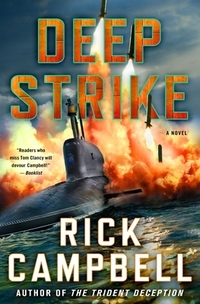Raft of Stars by Andrew J. Graff
 Wednesday, March 24, 2021 at 7:15AM
Wednesday, March 24, 2021 at 7:15AM 
Published by HarperCollins/Ecco on March 23, 2021
Raft of Stars begins as a crime story and transforms into an adventure story, pitting three pairs of characters against nature (and sometimes against each other) as they navigate a river and forest during a violent storm. Dale Breadwin (“Bread”) and Fischer Branson (“Fish”) are best friends. Bread’s father abuses him. Fish’s father is dead, although he’s kept that a secret from Bread. The story begins with Fish shooting Bread’s father. The father had it coming, but Fish and Bread decide that running away is the better part of valor, so they set out on a Huck Finn adventure, building a raft and heading down the river.
Sheriff Cal investigates the shooting. Cal left a job in Houston after he behaved in a way that was evidently too violent even for the Houston police. Coping with crime gave Cal a drinking problem. His former boss in Houston somehow got Cal a job as interim sheriff in a northern Wisconsin county. Cal isn’t much of a cop but the county probably doesn’t need or want much of a cop.
Fish’s grandfather, Ted Branson, has a gruff manner and a good heart, a combination found in fiction more often than reality but one that appeals to readers. Ted teams with Cal to follow the kids on horseback. Ted does most of the work because Cal is no friend of horses. They exchange philosophies of life as they track the kids. Cal hates being a cop and is thinking about taking up farming. Ted hates farming — it bores him to death — but he gave up his dreams when he had a child because responsible people “give things up instead of burning the whole thing down. You just don’t light the match. You suffer when you need to.” There aren’t enough people like Ted in the world.
Tiffany Robins was born in the small Wisconsin town and expects to die there. Opportunities have not graced her life. She sees the new sheriff as an opportunity. Before she gets to know him, however, Bread and Fish are on the run and Tiffany has lost the sheriff’s dog. She teams with Fish’s mother, Miranda, to follow the boys in a canoe. Their adventure is a lesson in self-confidence for Tiffany.
Some of the story is familiar. There are bears because you can’t have a wilderness adventure without bears. There are rapids because you can’t have a river adventure without rapids. There’s a love interest because, well, just because. Yet the story isn’t entirely predictable, in part because the characters are more important than their adventures. And despite the familiarity of scenes involving bears and rapids, the scenes are so well written that they create the excitement and tension an adventure novel should deliver.
The story as a whole is sweet, occasionally bordering on saccharine, but not so often that the artificial sweetener becomes annoying. At times, the story is a bit too corny (even the names Bread and Fish are corny in tandem). I could have done without the apparent heavenly intervention that helps Fish out of a jam. Still, the novel works because the characters grow and change, in part because quarreling with each other forces them to take stock of their lives. The novel’s merits easily outweigh its flaws.
RECOMMENDED



